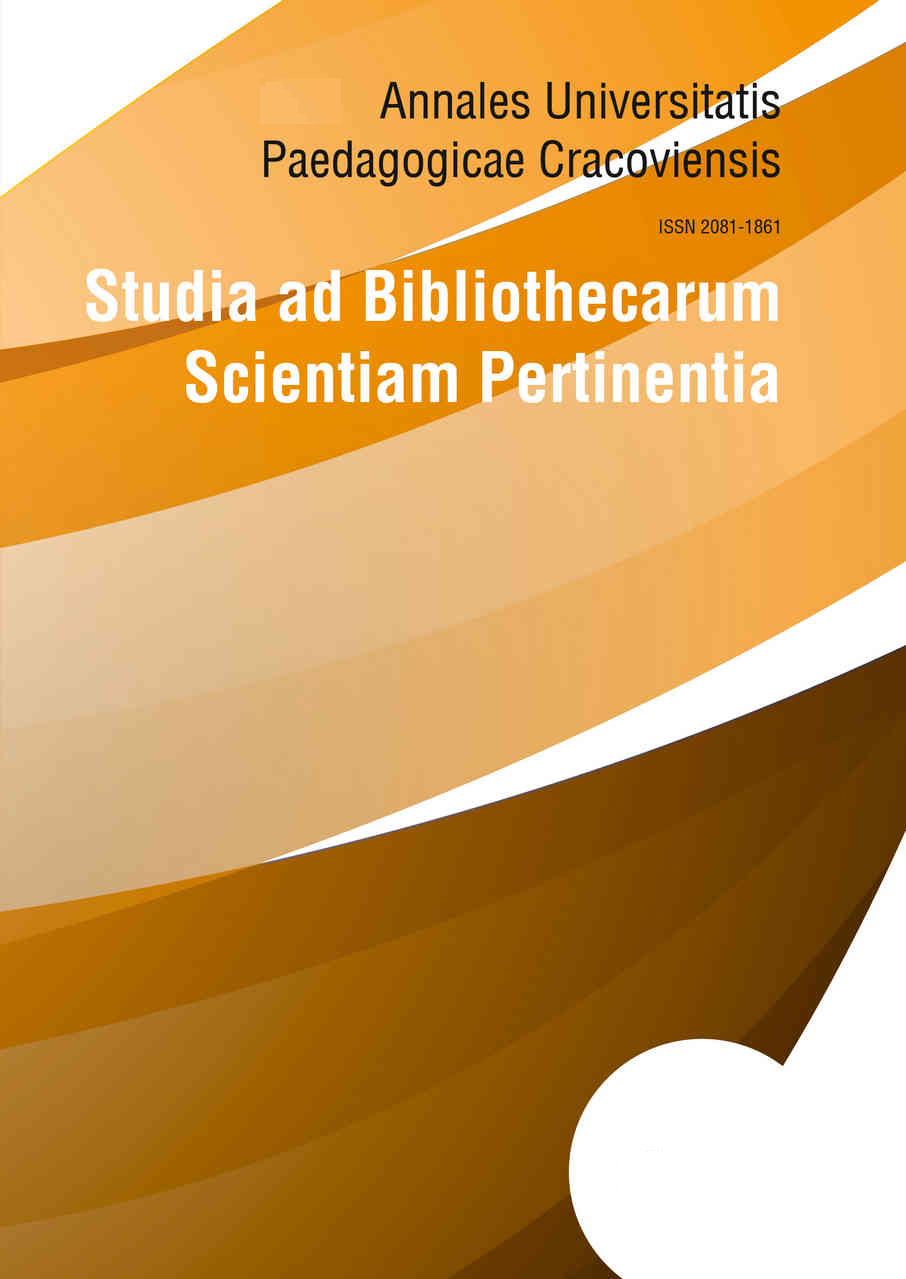The application of artificial intelligence in the automated design of labeling systems: An analysis of experiment results
DOI:
https://doi.org/10.24917/20811861.22.36Keywords:
information architecture, generating labels, labelling systems, artificial intelligenceAbstract
Thesis/aim: The aim of the paper is to investigate the potential of using artificial intelligence (AI) to automatically generate labels in the form of headers and options for labeling systems. Research methods: Two experiments were conducted, in which five chatbots - ChatGPT 4.0, ChatGPT Plus, Gemini Free, Gemini Advanced, and Claude Sonnet - were asked to generate sets of labels according to a given prompt and four sets of input data. The evaluation of chatbots' capabilities was carried out using a comparative analysis method. The analysis included assessing the length, consistency, specificity, mutual exclusivity, and descriptiveness of the generated labels. Results: The chatbots generated similar or very different labels depending on the input data. In terms of generating navigation system options, they scored the following points out of 40 possible: ChatGPT 4.0 - 34 pts, ChatGPT Plus - 38 pts, Gemini Free - 29 pts, Gemini Advanced - 25 pts, Claude Sonnet - 35 pts. They performed slightly differently in generating headings, receiving ChatGPT 4.0 - 36 pts, ChatGPT Plus - 35 pts, Gemini Free - 29 pts, Gemini Advanced - 36 pts, and Claude Sonnet - 34 pts. ChatGPT Plus performed best in the experiments, while Gemini Free performed the weakest. Conclusions: Both paid and free versions of chatbots perform well in generating labels. Each of the tested chatbots can be a source of inspiration for an information architect, but final design decisions should be made after conducting appropriate user tests.
References
AI Tools in Framer, [on-line:] https://www.framer.com/features/ai – 16.07.2024.
Akhtar Z.B., Unveiling the evolution of generative AI (GAI): a comprehensive and investigative analysis toward LLM models (2021–2024) and beyond, „Journal of Electrical Systems and Information Technology” 2024, vol. 11, no. 1, https://doi.org/10.1186/s43067-024-00145-1.
Carr D., ChatGPT tops 25 million daily visits, Similarweb, 3.02.2023, [on-line:] https://www.similarweb.com/blog/insights/ai-news/chatgpt-25-million – 11.07.2024.
Co to jest duży model języka (LLM)?, OVHcloud Polska, [on-line:] https://www.ovhcloud.com/pl/learn/what-is-large-language-model – 7.07.2024.
Dwivedi Y.K., Kshetri N., Hughes L., i in., Opinion Paper: “So what if ChatGPT wrote it?” Multidisciplinary perspectives on opportunities, challenges and implications of generative conversational AI for research, practice and policy, „International Journal of Information Management” 2023, vol. 71, https://doi.org/10.1016/j.ijinfomgt.2023.102642.
FigJam AI, [on-line:] https://www.figma.com/figjam/ai – 16.07.2024.
Giray L., Prompt engineering with ChatGPT: A guide for academic writers, „Annals of Biomedical Engineering” 2023, vol. 51, no. 12, s. 2629–2633, https://doi.org/10.1007/s10439-023-03272-4.
Kalbach J., Projektowanie nawigacji strony WWW: optymalizacja funkcjonalności witryny, Gliwice 2012.
Meet Hotjar AI: Your personal AI-powered research assistant, [on-line:] https://www.hotjar.com/blog/introducing-hotjar-ai – 16.07.2024.
Nielsen J., What AI can and cannot do for UX, 1.02.2024, [on-line:] https://www.uxtigers.com/post/ai-can-cannot-do-ux – 4.06.2024.
Pirker M., AI Insights: Instantly uncover key insights and patterns across your user tests, 7.06.2024, [on-line:] https://www.userbrain.com/blog/ai-insights-instantly-uncover-key-insights-and-patterns-across-your-user-tests – 16.07.2024.
Rosenfeld L., Morville P., Arango J., Architektura informacji w serwisach internetowych i nie tylko, tłum. R. Meryk, Gliwice 2017.
Rustambek M., The role of artificial intelligence in web sites, „Proceedings of International Conference on Scientific Research in Natural and Social Sciences” 2023, vol. 2, no. 7, s. 101–107, [on-line:] https://econferenceseries.com/index.php/srnss/article/view/2407 – 9.07.2024.
Tomaszczyk J., Matysek A., IA, UX, UID, IxD – analiza terminów i pojęć, „Zagadnienia Informacji Naukowej – Studia Informacyjne” 2020, nr 1, s. 121–143.
Downloads
Published
How to Cite
Issue
Section
License
Copyright (c) 2025 AUPC Studia ad Bibliothecarum Scientiam Pertinentia

This work is licensed under a Creative Commons Attribution 4.0 International License.

